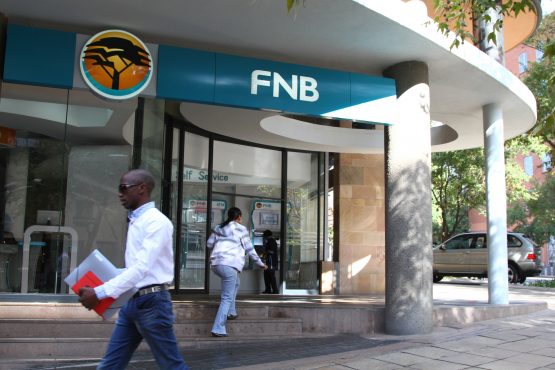FNB being sued for R103m by customer it accused of fraud

For nearly eight years, Durban businessman Nav Chan has waged a relentless social media war against FNB, which accused him of fraud for misrepresenting his income when applying for credit cards with FNB and its partners, Discovery and Kulula.
Chan’s name ended up on an anti-fraud database operated by the SA Fraud Prevention Services (SAFPS), which is shared by the banks and retailers for the most part.
What alarmed Chan was the fact that he was merely suspected of fraud, and yet suddenly he was persona non-grata, not just with FNB, but Absa as well. It seemed no one wanted to touch him. In the blink of an eye, he says, his import-export business was strangled by a lack of cash.
Before this all started in 2013, Chan had a perfectly clean credit record.
He only found out about the secret SAFPS blacklisting when his green ID book went missing and he tried to have it replaced. “The police told me my name was blacklisted on this database I had never heard of before, called Shamwari, which is operated by the SAFPS. I’m all for fraud prevention, so I wanted to help them clear up what was an obvious mistake,” says Chan.
That was easier said than done. Chan asked to see if there was a criminal charge against him so he could address it, but that only came later.
When Chan laid a complaint with the Public Protector (then headed by Thuli Madonsela) and the National Credit Regulator, FNB and Absa removed his name from the Shamwari database.
Yet the National Prosecuting Authority (NPA) decided to push on with the case after FNB pressed criminal charges of fraud.
FNB’s 2013 fraud charges against Chan accuse him of supplying false information while applying for the FNB Platinum credit card, as well as cards from Kulula and Discovery.
Read: FNB wants you to ditch your physical cards
FNB also accused him of supplying false information when later applying for a bank account upgrade and an increase in credit card facilities. In all, he was facing seven charges of fraud.
What the bank seems to have missed – something that was clarified in the 2017 magistrate’s court transcript – was that Chan’s salary was paid into an offshore account, with money transferred to his FNB Platinum card account as and when needed. It was not paid into his FNB Platinum account, nor does there appear to be a document obligating him to do this.
Bank could have picked up the phone
Chan denied all of the charges against him, saying the information provided was at all times correct, and that bank staff were guilty of basic administrative errors which could have been easily verified had they bothered to pick up the phone and ask. But he also suspects he became a target for the bank after repeatedly questioning how it was calculating its eBucks rewards.
When the matter came before the Durban Magistrates Court in 2017, FNB admitted that it had not lost any money as a result of Chan’s alleged fraud, and the case was dismissed.
Chan was cleared on all seven counts.
One of the bank’s own witnesses described him as a model client, and the transcript of the trail shows bank investigators made little effort to verify the authenticity of the income statements provided by Chan when applying for credit facilities.
R3m in legal fees
Chan was not done with the bank yet. Already R3 million in the hole for legal fees, he is now suing the bank for R103 million in damages, which is revenue lost as a result of the “financial defamation” he says he has endured as well as the impact on his import-export business. The damages figure was calculated by a professor of accounting at the University of KwaZulu-Natal.
Chan, who has a masters degree in business from the University of Chicago, has been trolling FNB for years, building up a steady following on social media and keeping them up to speed on the latest developments in his case.
At one point, FNB offered to withdraw its charges against him provided he issue a public apology and refrain from any further adverse publicity for the bank. Chan refused.
In June 2020, Chan served summons on FNB, arguing that in laying charges of fraud against him, the bank and its employees “had no reasonable or probable cause for doing so nor did it have any reasonable belief in the truth of the information given”.
On this basis, Chan says the charges made against him were done maliciously and in bad faith.
FNB’s argument
In its reply to the summons, FNB denies the allegations of malice and bad faith, and the fact that Chan suffered damages in the amount of R103 million.
FNB is defending the matter, arguing that Chan failed to take necessary steps to avert any loss of income arising from the NPA’s prosecution, and for dragging out the prosecution and failing to cooperate with the police.

